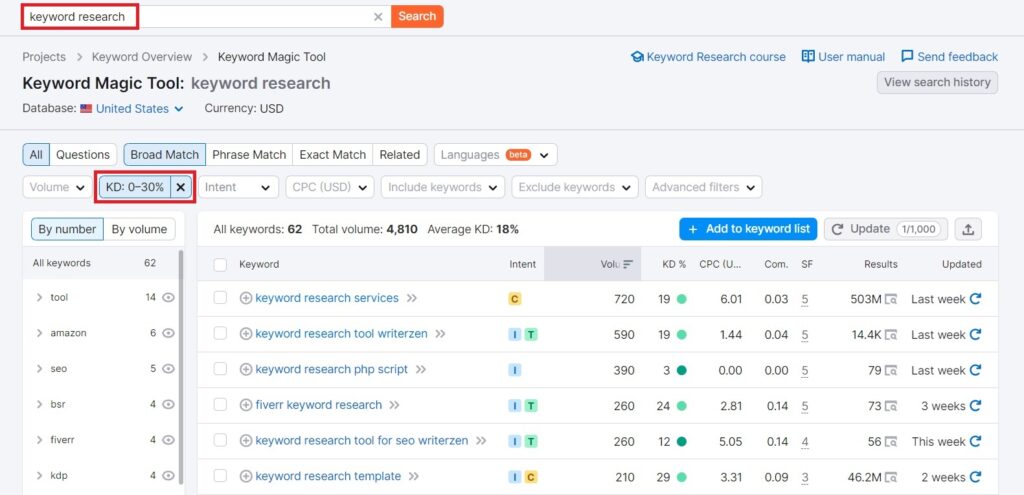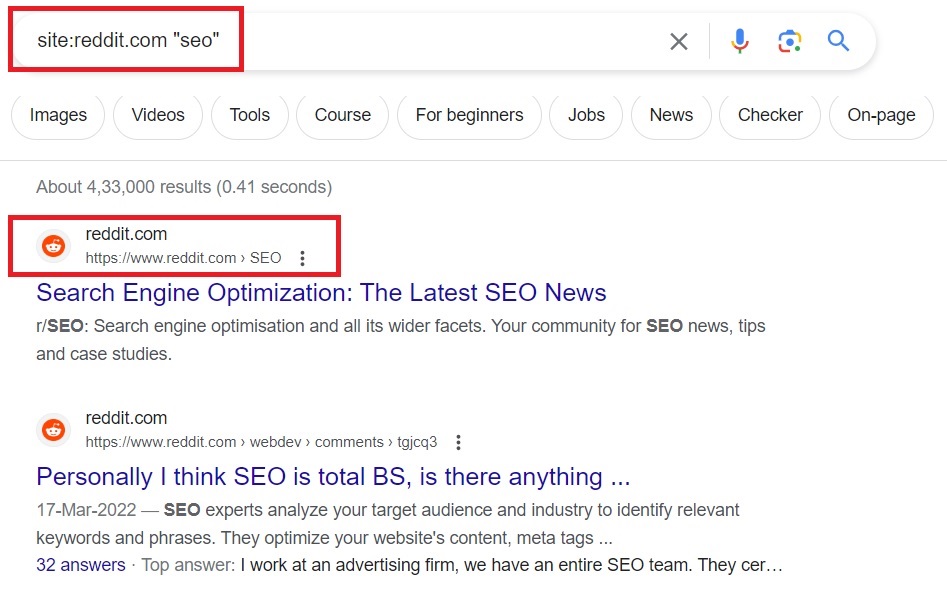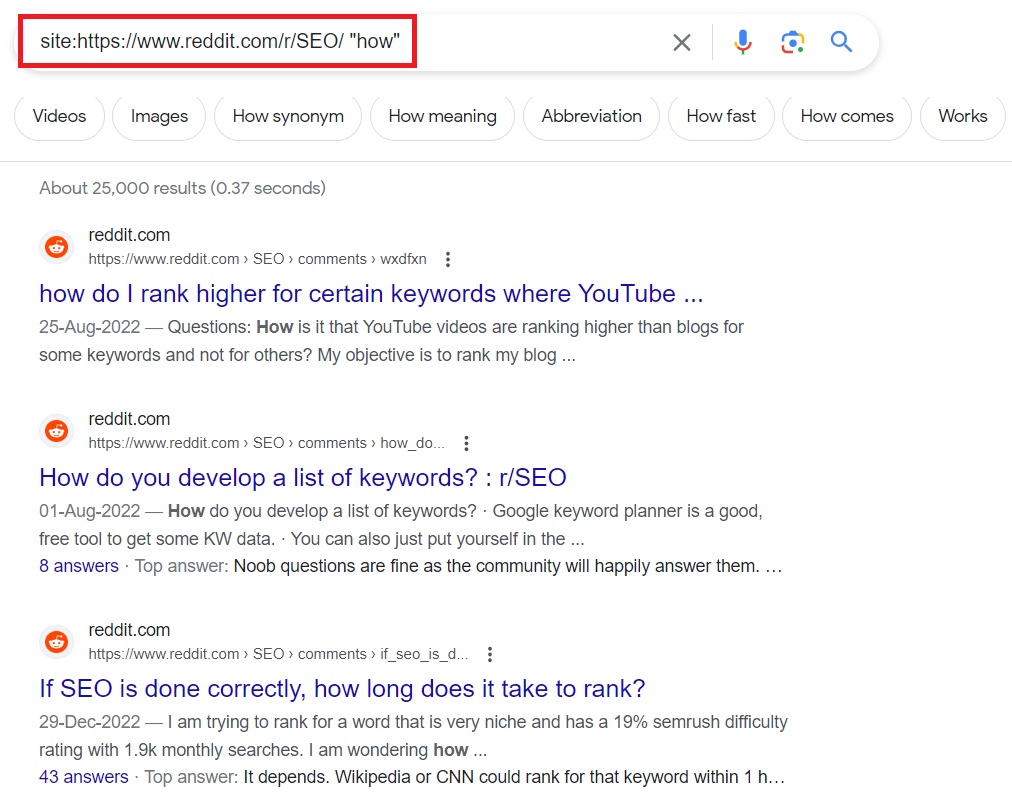Table of Contents
When it comes to enhancing the visibility of your website, the art of selecting the right keywords serves as a potent tool. Imagine finding keywords that are not overly complex yet effective in guiding the right audience toward your domain. We’re going to talk about these super cool keywords called “low-hanging fruit keywords” in this guide. You’ll learn what they are, why they’re important, and how you can find them to make your website more popular.
What are Low Hanging Fruit Keywords
Low-hanging fruit keywords are keywords that are less competitive but still offer a lot of value to your users and your content. These keywords have lower keyword difficulty (as per tools) and also have low volumes in a lot of cases but drive quality traffic to your website.
Picture this: You’re looking for keywords that are not too competitive yet highly relevant to your content. Essentially, they represent the sweet spot between decent search volume and lower competition. Incorporating these keywords strategically into your content can significantly enhance your SEO efforts, allowing you to improve website ranking and boost organic traffic.
Benefits of Targeting Low Hanging Keywords
Choosing low-hanging fruit keywords as part of your SEO strategy brings forth a bouquet of benefits. Let us look at some of them:
- Unlike their high-competition counterparts, these keywords offer quicker results, as they are easier to rank for.
- They possess the potential for higher conversion rates due to their relevance to user intent.
- By targeting these keywords, you’re paving a smoother path to improve website ranking, attract organic traffic, and boost overall website visibility.
How to Identify Low Hanging Fruit Keywords
When it comes to optimizing your online presence for search engines, targeting the right keywords is crucial. Here are four effective strategies to help you identify these “low hanging fruit keywords” :
1. Using your Favourite Keyword Research Tool:
Discovering low hanging fruit keywords using a keyword research tool is all about finding words that many people search for, but not many websites use. There are different tools like Ahrefs or Semrush that can do this. In this case, we’re using Semrush. These low-hanging keywords are like little treasures and can bring relevant visitors to your website. Incorporating effective SEO tips while researching these keywords can lead to better results.
Seed Keywords – Input your seed keyword that is relevant to your niche or topic. This acts as the foundation of your research.
Filter by Keyword Difficulty (KD) – Apply the KD filter to identify keywords with a difficulty score below 30%, signaling their potential as low-hanging fruit keywords and typically having moderate search volume.

Intent Mapping – Focus on keywords that align with your content’s intent, whether informational, commercial, or transactional.
Note: Even though KD is a score given by tools and not an official Google measurement, it's still something you can think about when planning your strategy.
2. Using Google Search Console (GSC)
Using Google Search Console to discover low hanging fruit keywords involves utilizing the data provided by Google about your website’s performance in search results. There are a couple of methods I use to find these low hanging keywords using GSC. Let’s explore a few of them here:
I. How to find low hanging fruit keywords on GSC using Performance Metrics:
Step 1: Log into your GSC account and select your website property.
Step 2: Navigate to the “Performance” section to access insights into your site’s performance on Google’s search results.
Step 3: Choose the desired date range to observe trends. You can select the last 3 months, 6 months, or a custom range.
Step 4: By default, the keywords are often sorted by the number of clicks. Here you would have to sort keywords by impressions, identifying those with substantial impressions that do not generate enough clicks.
Step 5: For the identified keywords with decent impressions low clicks, and obviously low CTR, think about making your content better for them by utilizing these keywords. If keywords from similar clusters are already mapped to a landing page consider optimizing existing content by tweaking the meta tags. Also, try adding those keywords to the actual content. A really important thing is to make sure your content gives people what they’re looking for, and that your pages are useful.
OR
You might also want to consider creating new landing pages to target these newly identified keywords effectively. This way, you are able to provide exactly what your users are are looking for!
II. How to find low hanging fruit keywords on GSC using Regex Filters:
Applying regex filters within Google Search Console can effectively refine and identify specific types of low-hanging fruit keywords. The regex filters are designed to highlight distinct patterns, question-based inquiries, branded searches, and queries containing particular terms. Let’s explore the process of using these regex filters:
Step 1: Similar to the previous steps, access your Google Search Console account and choose the property (website) you’re working with.
Step 2: Once again, navigate to the “Performance” section and select the desired date range for your analysis.
Step 3: Now, click on the “Queries” tab to view the list of keywords users have used to discover your site. Click on the “Filter” button to set up the filters. In the “Queries” field, you can apply your regex filters one by one. Let’s break down each filter:
REGEX 1 : ([^” “]*s){5,}?
This filter excludes queries with a minimum of 5 words. You can modify the numerical value based on the desired number of words you wish to find in the queries.

REGEX 2 : (who|what|where|when|why|how)
This filter targets question words. Get a list of long tail queries that contain words like “who,” “what,” “where,” “when,” “why,” or “how.” These words usually signal that someone is looking for information or answers.

REGEX 3 : (who|what|where|when|why|how).(brandname).*
A slight adjustment to the previous filter by adding “brand name” will provide a list of detailed question queries related to the brand. Feel free to replace the term ‘brand name’ with the actual brand/website you are looking for opportunities for.

REGEX 4 : b(?:PDF|download|checklist|printable)b
This regex filter on Google Search Console will help by targeting specific types of queries that indicate user intent related to downloadable resources. The filter is designed to identify queries containing words like “PDF,” “download,” “checklist,” and “printable.” These words suggest that users are looking for materials they can save, use, or print. By using this filter, you can identify keywords that signify users’ interest in obtaining downloadable content, enabling you to tailor your content strategy to provide the resources they’re seeking.

Step 4: Examine the keywords that match your filters. These are potential low hanging fruit keywords. Consider either creating new content or enhancing existing content to address these specific queries.
I would also recommend checking out my article on conducting a comprehensive content audit using google search console and identifying more opportunities keywords.
Tap into Niche Topics using AnswerThePublic & AlsoAsked
I. AnswerThePublic
Leverage AnswerThePublic to unearth a goldmine of questions and phrases related to your niche. AnswerThePublic is a tool that helps you gather, organize, and manage data more effectively for your chosen keywords.
Enter a keyword and receive a visual representation of related queries, providing insight into user intent. Sometimes, you might need to understand some of the answers yourself. This tool also works with questions, prepositions, and comparisons.

II. AlsoAsked
Explore AlsoAsked, which pulls data from the “People Also Ask” section on Google SERPs, to identify additional question-based queries.
To use AlsoAsked, simply enter a keyword, and you’ll get a list of questions from the PAA section. The best part is, that it gives you even more questions to explore, making it a limitless way to tap into Google’s data.

From my personal experience, AlsoAsked is incredibly valuable for generating content ideas and spotting significant content gaps in a way that lets us see how different topics fit together. Delving into the questions that potential users ask has given me a fresh perspective and deviated from relying purely on keyword research tools.
Feel free to check out AlsoAsked.com!
Mine Forums like Quora and Reddit
Forum platforms such as Quora and Reddit have emerged as dynamic hubs of user engagement, giving rise to vast repositories of user-generated content. This content can prove to be an invaluable resource, particularly due to its inherent relevance to the users themselves. I will delve into two primary methods through which this content can be effectively mined:
Method 1
The first method to find queries is by exploring platforms like Quora and Reddit for niche-related questions using relevant search operators.
For instance, if you plan on writing content on “SEO” you first need to find the subreddit that talks about SEO. You can make use of site:reddit.com “SEO” to find the subreddit.

Once you find the subreddit, you can further use the site operator to find queries by using the following search query site:reddit.com/r/SEO/ “how”. You can change the words in the quotation marks and use words like “can I’, and “what if” to explore different options and get the questions people are asking.

“Using Reddit for keyword research is also a great way to connect with your target audience and truly understand their pain points. The more trust you build with your audience, the more recognition you’ll have throughout their buyer’s journey“
Taylor Scher, SEO Specialist
Method 2
Another effective way to uncover low-hanging opportunities involves using the synergy between Semrush and Quora. Simply navigate to Semrush and utilize the Organic Research tool. Input your desired domain into the tool’s input field, then select “Search.” For our target domains, we’re focusing on Quora and Reddit.

Proceed by applying the filters demonstrated below, which help narrow down our preferred topic. In this case, we aimed to discover opportunities for keywords related to ‘cbse,’ so we included that filter.

The underlying concept here is that forum websites like these often manage to rank with minimal content and even lesser SEO efforts. Imagine the potential if you seize this opportunity by providing comprehensive, high-quality content and adhering to the best SEO practices.
After you’ve updated the content or created appropriate landing pages, it’s important to invest extra effort in establishing relevant internal links. This ensures that the pages are easily discovered by search engine crawlers. Moreover, these internal links send the correct signals to the crawlers, contributing to the overall effectiveness of your SEO strategy. Also, make sure you market your content well by sharing it across all relevant platforms.
Quick Summary
– Seamlessly integrate identified low hanging fruit keywords into your title tags, meta descriptions, and throughout your content.
– Create dedicated pages that provide comprehensive information, addressing user intent and queries.
– Strengthen your internal linking strategy, guiding search engine crawlers to these optimized pages.
– Promote your content across social media platforms and relevant online channels for increased visibility.
The Final Scoop on Fruitful SEO Keywords
Using low-hanging keywords is like using a cheat code to elevate your website’s performance. By focusing on these keywords and implementing the strategies outlined in this guide, you’re not only improving your website’s ranking and visibility but also building a stronger connection with your target audience.
Remember, you can use your favorite tools, GSC, and even forum sites to find these low hanging fruits! When you use them in the right places, you’ll see your online presence flourish.
Want more golden nuggets of SEO wisdom? Don’t miss out! Follow me on Linkedin and Twitter for exclusive insights, tips, and real-time updates!






